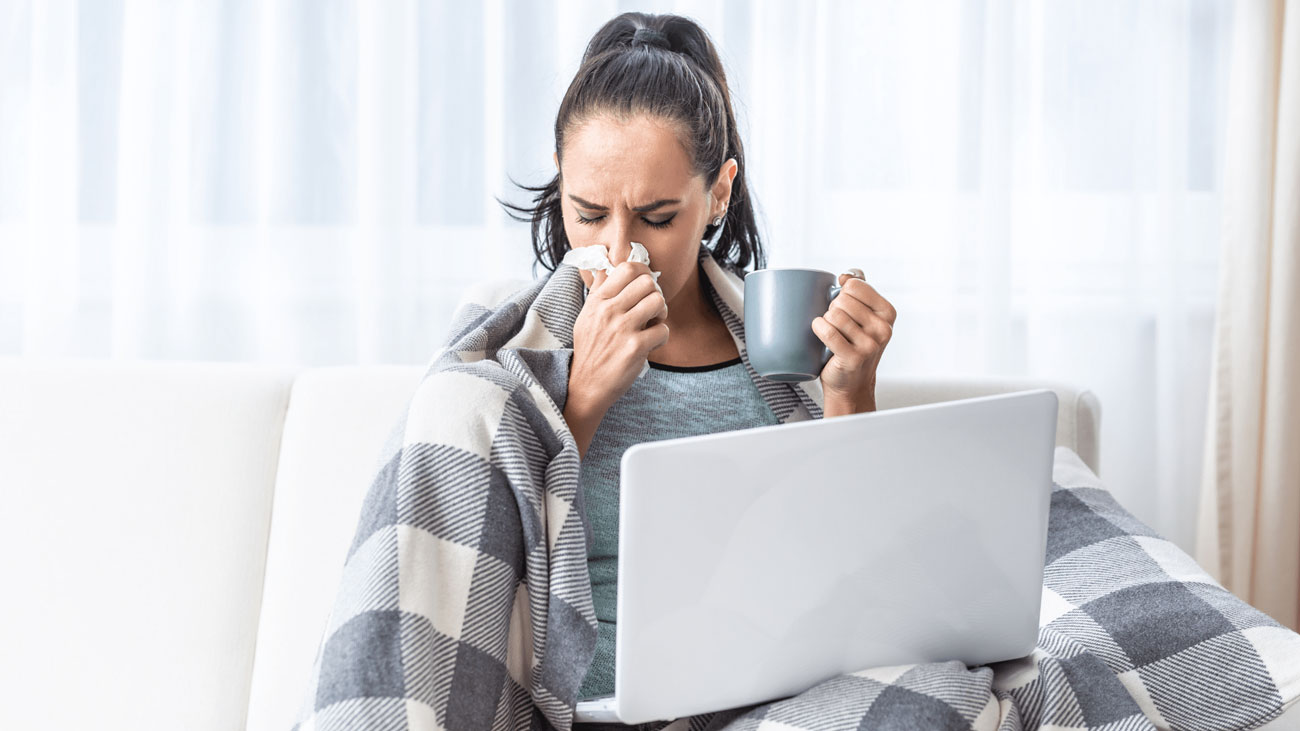Benadryl® and Alcohol

- Benadryl® is an over-the-counter antihistamine used in the treatment of allergies.
- Both alcohol and Benadryl® have sedative effects.
- Taking both of these substances together can cause intensified effects, health problems, and even addiction.
For those with seasonal allergies, Benadryl® is often a must-have to alleviate aggravating symptoms such as runny nose, sneezing, and watery, itchy eyes. But, for those who also drink alcohol, there can be potential ramifications when taking these two substances concurrently. The negative effects of abusing substances are compounded when alcohol is involved, increasing the risk of developing an addiction to alcohol.
Here’s what you should know about taking Benadryl® and alcohol together.
How Do Benadryl® and Alcohol Interact?
Benadryl®, also known as diphenhydramine, is an over-the-counter antihistamine used to treat allergy symptoms. Alcohol is a depressant that affects the central nervous system.
When Benadryl® and alcohol are in an individual’s system simultaneously, the sedative effects of both substances can be intensified. This combination of substances can lead to increased drowsiness, dizziness, and impaired coordination, as well as physical symptoms such as nausea, vomiting, headaches, and decreased blood pressure.
Benadryl and alcohol together can also be risky for individuals with liver or kidney disease, heart disease, or sleep apnea.
What is the Half Life of Benadryl®? What is the Half Life of Alcohol?
Benadryl® has a half-life of 3.4 to 9.2 hours[1] with a peak time of 2 hours. The body then begins to excrete it through the urine, ridding the body of the substance completely in about 2 days. Alcohol has a half life of four to five hours, and is fully excreted by the body in around 25 hours.[2]
How Long After Taking Benadryl® Should I Wait Before Drinking Alcohol?
Whether you are taking Benadryl® or another antihistamine medication such as Zyrtec®, Claritin®, Allegra®, or a prescription allergy medication, it is best to abstain from alcohol until the medication has been flushed from your system. This process takes approximately two days. Therefore, it is recommended that you wait a minimum of two days after taking your last dose of antihistamine before consuming alcohol.
Can Drinking Alcohol while Taking Benadryl® Cause Liver Damage?
Both alcohol and Benadryl® can individually cause liver damage, and when they are taken together, the risk of liver damage can increase significantly.
Alcohol is metabolized in the liver, and excessive alcohol consumption can cause liver damage or even liver failure. Benadryl® contains an active ingredient called diphenhydramine, which is also metabolized in the liver. When Benadryl® and alcohol are taken together, they can overwhelm the liver’s metabolic capacity, leading to liver damage.
Can Combining Benadryl® and Alcohol Cause Heart Problems?
Benadryl® is an antihistamine medication that can cause changes in heart rhythm, especially at high doses. Alcohol, on the other hand, can also affect heart rhythm and increase the risk of arrhythmias.
Combining Benadryl® and alcohol can further increase the risk of heart problems such as palpitations, irregular heartbeat, or even heart attack in some cases.
Can Taking Benadryl® and Drinking Alcohol Together Cause Seizures?
Yes, taking Benadryl® and drinking alcohol together can cause seizures. Both Benadryl® and alcohol can individually lower the seizure threshold, and when taken together, they can increase the risk of seizures.
Benadryl® is an antihistamine medication that can cause sedation and drowsiness, especially at high doses. Alcohol, on the other hand, can also cause sedation and impair cognitive function. When taken together, they can further enhance the sedative effect and increase the risk of seizures.
Can Benadryl® and Alcohol Cause Stomach Bleeding?
Benadryl® and alcohol can cause stomach bleeding, as both substances can individually irritate the stomach lining and increase the risk of bleeding. Therefore, it’s important to avoid combining Benadryl® and alcohol to reduce the risk of stomach bleeding.
How does Drinking Alcohol Affect the Sedative Effects of Benadryl®?
Drinking alcohol can enhance the sedative effects of Benadryl®, as both substances can individually cause sedation and impair cognitive function. Therefore, it’s important to avoid drinking alcohol while taking Benadryl®, as it can increase the risk of excessive sedation.
Can Taking Benadryl® and Drinking Alcohol Lead to Addiction?
Taking Benadryl® and drinking alcohol together can lead to addiction, as both substances can individually cause addiction [1], and when taken together, they can increase the risk of addiction.
Should Someone With Alcohol Use Disorder Take an Antihistamine?
If you are suffering from Alcohol Use Disorder and are having difficulties with abstaining from alcohol, it is not recommended that you take antihistamines.
If you are suffering from allergy symptoms and have decided to attempt to stop drinking while you are taking the medication, speak to your doctor right away. Depending on the severity of your addiction, ceasing alcohol use immediately can be just as dangerous –and sometimes more so– than combining the two substances.
Treating Alcohol and Other Substance Addiction
If you are experiencing signs and symptoms of addiction to alcohol, Benadryl®, or other antihistamines or substances, you are not alone–and help IS available.
Frequently Asked Questions About Using Benadryl® and Alcohol
More answers to some of the most common questions about taking Benadryl® and alcohol together.

